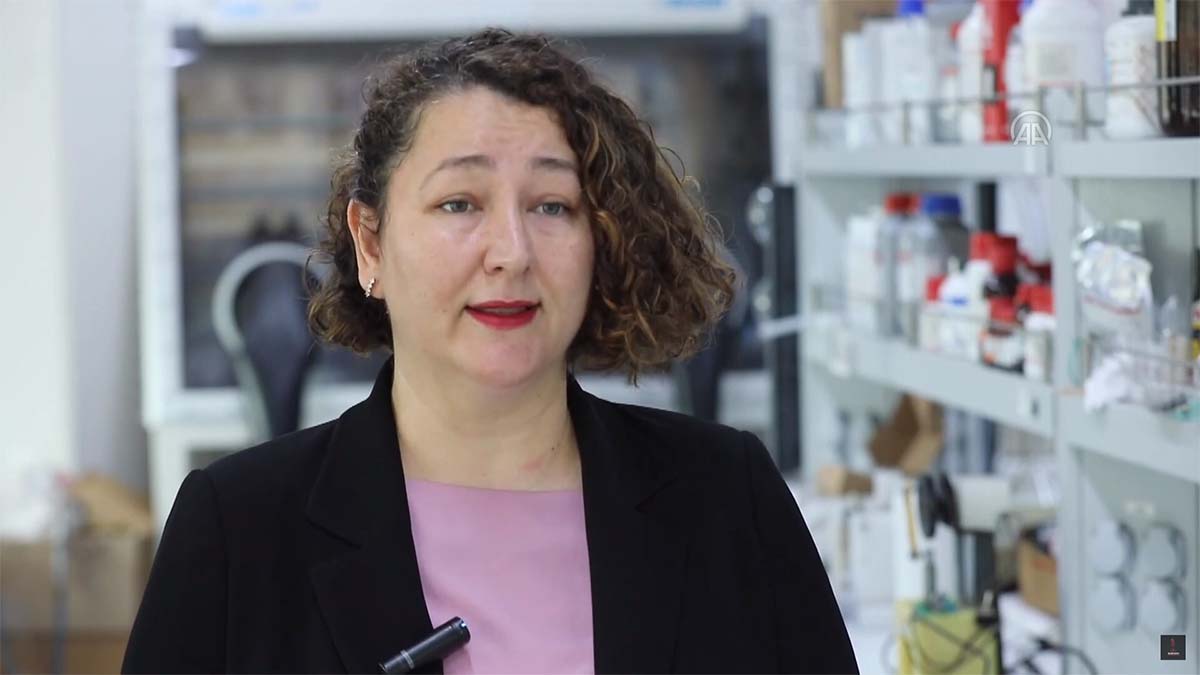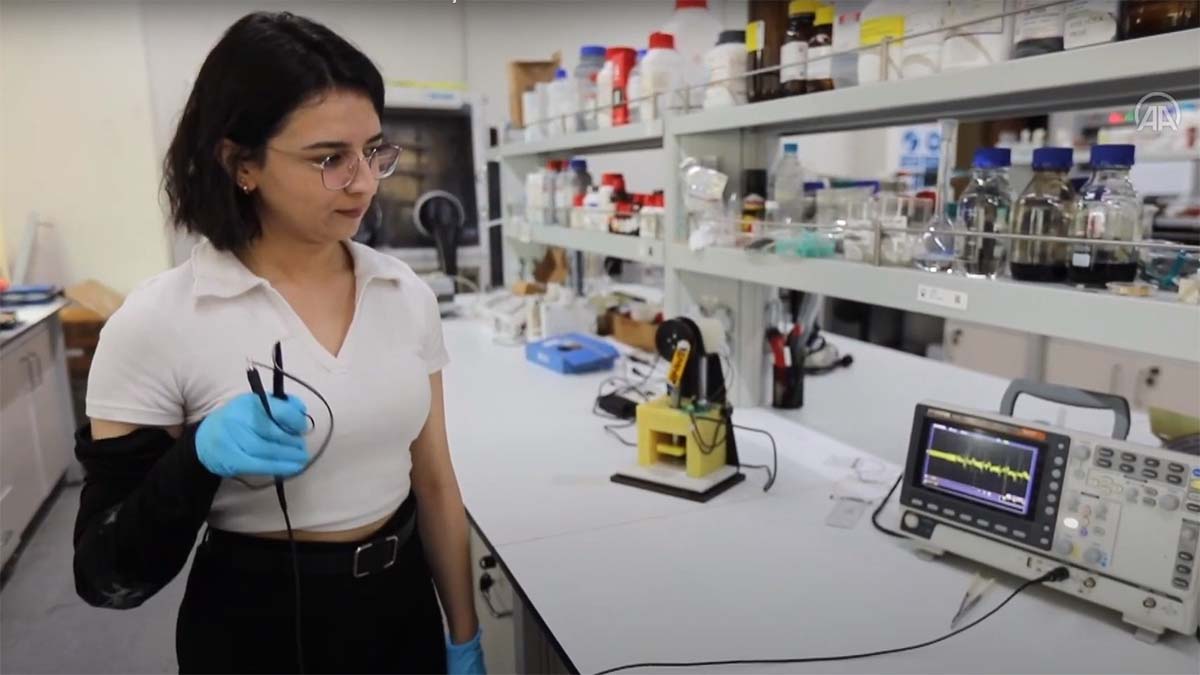A group of scientists from Bursa Technical University (BTU) developed a prototype of an ‘electricity-generating fabric’ from motion energy. The team of 5 people, headed by Prof. Dr Ayşe Bedeloğlu, Head of the Department of Polymer Materials Engineering at the Faculty of Engineering and Natural Sciences, brought their project (TÜBİTAK 219M103) to an important stage after 3 years of study. The prototype, which differs from its counterparts in that it is made of hybrid nanofiber material and is light and flexible, was tested in the laboratory by wearing it on an arm. This technology can be integrated into other textile materials and fabrics and is intended to be used for charging wearable products such as smartwatches and smart bracelets. Experts continue their work in order to develop the project for which they have applied for a patent and bring it to the sector.
Vice Chancellor Prof. Dr Ayşe Bedeloğlu, stating that electricity production using textile materials is a current issue, noted that she also worked on ‘electricity-generating fabrics’ in her doctoral thesis. Bedeloğlu explained that the subject of this study emerged as a result of their concentration on the use of textiles in energy production and said: “Here, we have enabled the transformation of textile materials into energy-generating structures by bending, twisting movements, vibration or pressing movements. Wearable electronics have come to the fore in recent years. A wide variety of devices have also been developed in this regard. Some of them can also be used commercially, but adapting these wearable electronic materials to the human body will increase user satisfaction.”

Electricity-generating fabric provides lightness in wearable products
Prof. Dr Bedeloğlu stated that wearable electronic products can measure heart rate, blood pressure and blood sugar, guide the user like a fitness trainer and perform body monitoring, and drew attention to the fact that wearable products meet their energy needs from batteries, but they add weight to the body. She said: “The textile materials that produce energy suitable for these wearable electronics, which we have developed, are used together with the wearable electronics, enabling the person to provide energy to their devices in a comfortable and light way when it is necessary to use them on the body” and noted that the project subjects are still being worked on. Bedeloğlu relayed that there are two patent applications and utility model applications on this subject and added that they have also developed a test apparatus that can be used with measuring devices, especially for this electricity generation.
As part of the project, Research Assistant Ömer Faruk Ünsal took part as a researcher, while Faculty Members of the Department of Electrical and Electronics Engineering Assoc. Dr Cemal Hanilçi and Assoc. Dr Gökhan Gelen also supports the project.


